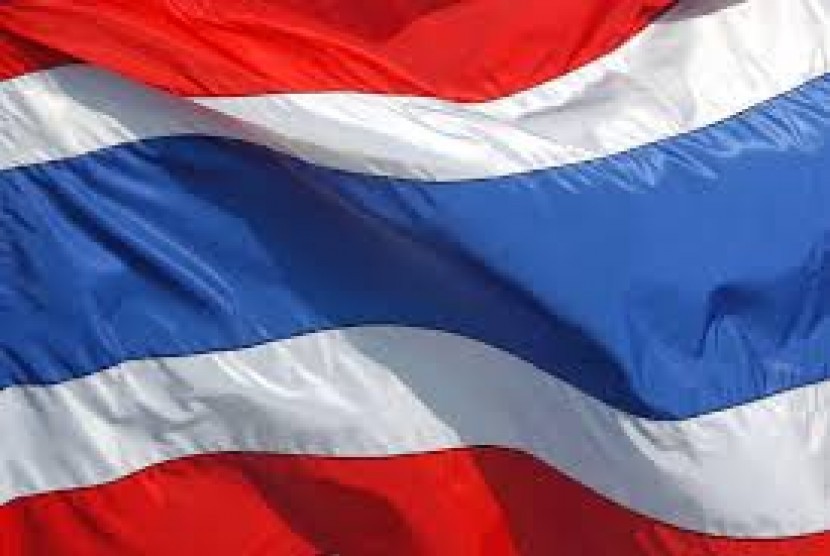REPUBLIKA.CO.ID, BANGKOK -- Dozens of anti-coup activists held a demonstration in central Bangkok Saturday, handing out roses and copies of George Orwell's "1984" -- a rare expression of public dissent in a nation still under strict martial law.
The demonstrators, a collection of pro-democracy groups including students, made no secret of their Valentine's Day protest plans, advertising them on Facebook.
In response the authorities put up a series of barriers to stop demonstrators accessing a plaza opposite a mall in the city's downtown Siam shopping district.
But dozens of activists nonetheless managed to gather on the streets and pedestrian walkways in the late afternoon, watched by a similar number of police officers.
Festooning the walkways and streets with roses, some erected cardboard ballot boxes and put up mock voting tables -- a criticism of Thailand's generals who seized power in a May coup following the ousting of Yingluck Shinawatra's democratically elected government.
Several of the most vocal protesters were seen being led away by police.
"I am here to protest against the coup," Pat Lertkeerstikul, an office worker, told AFP.
"It's almost a year since they stole the last election. We want our democracy back," she added.
Others protesters handed out copies of Orwell's anti-authoritarian novel "1984" and flashed the three-fingered salute from the popular Hollywood franchise "The Hunger Games".
Symbolic public readings of "1984" and the salute have both become symbols of opposition since the military's takeover -- but making such gestures frequently courts arrest.
Since Army Chief-turned-Prime Minister Prayut Chan-O-Cha declared martial law and seized power, sweeping curbs have been placed on freedoms.
The military have banned political gatherings, censored the media, arrested and detained opponents and ramped up prosecutions under the country's controversial lese majeste laws.
The junta says it will hold fresh elections in early 2016 once reforms to tackle corruption and curb the power of political parties are codified in a new constitution.
Some analysts and Shinawatra supporters fear those constitutional changes are designed to ensure the family is politically neutralised in any upcoming election.
Thailand's decade-long political conflict broadly pits a Bangkok-based middle class and royalist elite -- backed by parts of the military and judiciary -- against urban working-class voters and farmers from the country's north, many of whom are part of the 'Red Shirt' movement.


